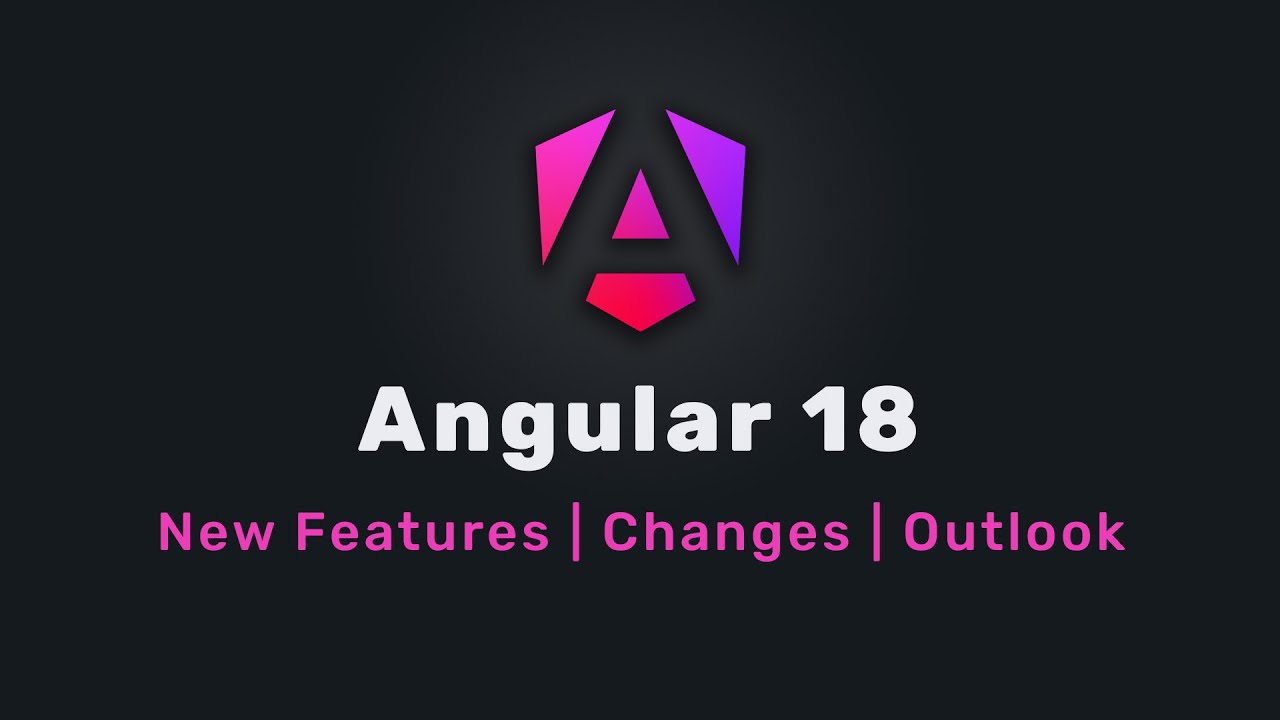Hello guys how are you? Welcome back on my blog. Guy today in this blog post I will tell you What’s new in Angular 18?
Angular 18 came. If you are new then you must check below two links:
Angular 18 introduces several new features and improvements aimed at enhancing performance, developer experience, and capabilities of Angular applications. Here are some of the key updates along with code snippets to illustrate their use:
1. TypeScript 5.4 Support
Angular 18 now supports TypeScript 5.4, bringing in improved type-checking, performance optimizations, and new language features.
2. Defer Views (Lazy Loading)
The ability to lazily load dependencies using defer views has been moved from developer preview to stable stage, enhancing application performance by loading components only when needed.
3. Route Redirects with Functions
Routes can now be redirected using functions, providing more flexibility in routing management. Here’s an example of a function-based redirect:
import { Routes } from '@angular/router';
import { MyComponent } from './my-component.component';
const routes: Routes = [
{ path: '', redirectTo: '/home', pathMatch: 'full' },
{
path: 'old-path',
redirectTo: () => {
const shouldRedirect = checkSomeCondition();
return shouldRedirect ? '/new-path' : '/another-path';
},
},
{ path: 'home', component: MyComponent },
];
4. Zone-less Change Detection
Angular 18 allows change detection to operate independently of zone.js, which can lead to performance improvements in certain scenarios. This feature is still experimental. Here’s how to bootstrap an application without zone.js:
import { bootstrapApplication } from '@angular/platform-browser';
import { provideExperimentalZonelessChangeDetection } from '@angular/core';
bootstrapApplication(MyApp, {
providers: [provideExperimentalZonelessChangeDetection()]
});
5. Enhanced Forms API
The Forms API has been upgraded to provide better control over form events and state changes. Here’s an example of using the enhanced reactive forms:
import { Component, OnInit } from '@angular/core';
import { FormBuilder, FormGroup, Validators } from '@angular/forms';
....
export class DynamicFormComponent implements OnInit {
form: FormGroup;
constructor(private fb: FormBuilder) {}
ngOnInit() {
this.form = this.fb.group({
email: ['', [Validators.required, Validators.email]],
skills: this.fb.array([
this.fb.control('')
])
});
}
get skills() {
return this.form.get('skills');
}
addSkill() {
this.skills.push(this.fb.control(''));
}
removeSkill(index: number) {
this.skills.removeAt(index);
}
onSubmit() {
if (this.form.valid) {
console.log('Form Value:', this.form.value);
}
}
}
6. New Template API (ng-template)
The new ng-template API provides a more intuitive way to handle templates, reducing boilerplate code. Here’s an example:
import { Component } from '@angular/core';
@Component({
selector: 'app-profile',
template: `
<ng-container *ngIf="showProfile; else noProfile">
<div>{{ user.name }}</div>
<div>{{ user.bio }}</div>
<a [href]="user.profileLink">View Profile</a>
</ng-container>
<ng-template #noProfile>
<div>No profile available</div>
</ng-template>
`
})
export class ProfileComponent {
showProfile = true;
user = {
name: 'Jane Doe',
bio: 'Software Developer and Tech Enthusiast',
profileLink: 'https://example.com/profile/janedoe'
};
}
7. Improved Debugging Tools
Angular 18 includes enhancements to Angular DevTools, making it easier to debug and inspect applications. This includes better logging, breakpoints, and real-time data inspection.
These updates are aimed at making Angular more powerful and easier to use, enhancing both performance and developer productivity.
I will appreciate that if you will tell your views for this post. Nothing matters if your views will be good or bad because with your views, I will make my next posts more good and helpful.
Jassa
Thanks

Leave a Reply
You must be logged in to post a comment.